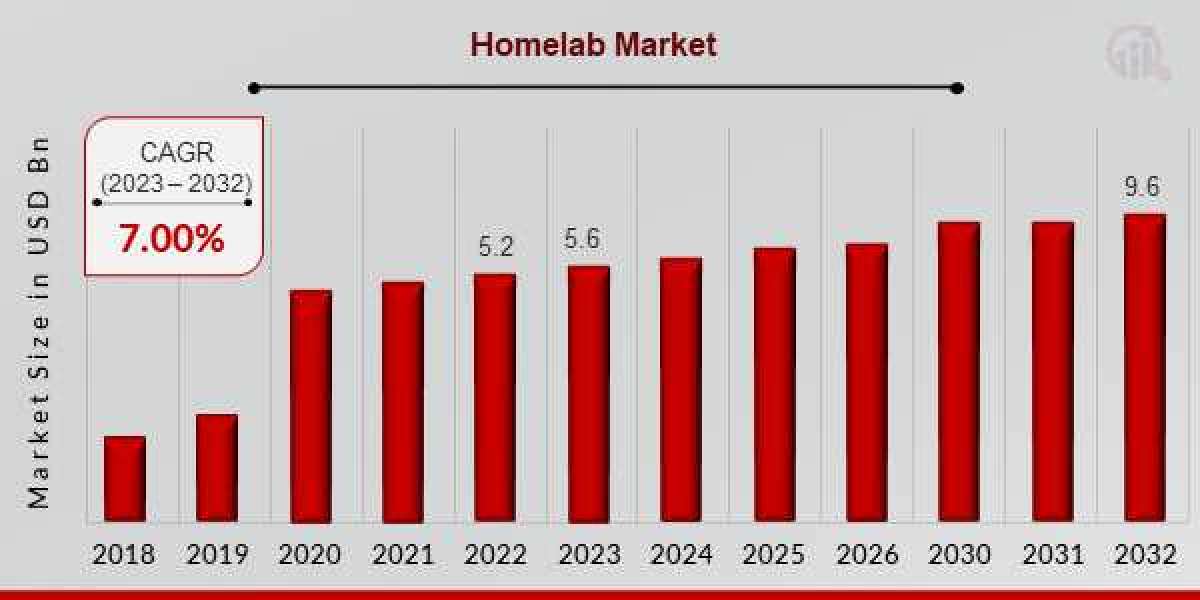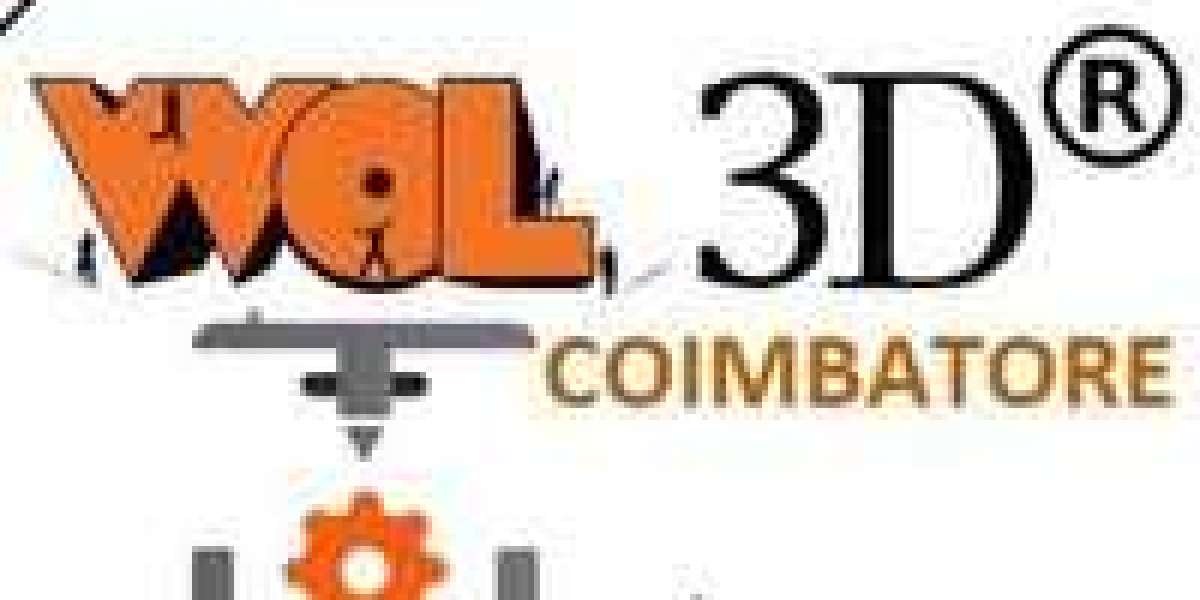Homelab Market: Comprehensive Overview
Market Overview
The homelab market, an evolving segment within the broader tech industry, has gained significant momentum over the past decade. This market encompasses a variety of hardware and software solutions designed for home-based, small-scale data centers used by tech enthusiasts, professionals, and small businesses. A homelab typically includes servers, networking equipment, storage devices, and various software tools that enable users to experiment with and learn about IT infrastructure, networking, virtualization, and other technologies in a controlled, personal environment. The Homelab market industry is projected to grow from 5.6 Billion in 2023 to USD 9.6 Billion by 2032, exhibiting a compound annual growth rate (CAGR) of 7.00% during the forecast period (2024 - 2032).
Request To Free Sample of This Strategic Report - https://www.marketresearchfuture.com/sample_request/21555
Key Market Segments
The homelab market can be divided into several key segments:
- Hardware: This includes servers, storage devices, networking equipment, and peripherals.
- Software: Operating systems, virtualization platforms, and management tools fall under this category.
- Services: This segment includes setup assistance, maintenance, and consulting services.
- Accessories: Racks, cooling solutions, and other ancillary equipment are part of this segment.
Industry Latest News
The homelab market has seen several noteworthy developments recently:
- Increased Demand During the COVID-19 Pandemic: The pandemic led to a surge in the adoption of homelabs as more people worked from home and sought to upgrade their home IT infrastructure. This trend has persisted even post-pandemic.
- Advancements in Virtualization and Containerization Technologies: Technologies such as Docker and Kubernetes have become more accessible, allowing homelab enthusiasts to experiment with enterprise-grade solutions at home.
- Introduction of Affordable Hardware: Companies like Raspberry Pi and Intel have introduced cost-effective hardware solutions, making it easier for individuals to start their own homelabs.
- Community Growth and Knowledge Sharing: Online communities and forums dedicated to homelabs have flourished, providing valuable resources and support for both beginners and experienced users.
Homelab Companies
Several companies play a significant role in the homelab market:
- Dell Technologies: Known for its range of servers and storage solutions, Dell is a popular choice among homelab enthusiasts.
- Hewlett Packard Enterprise (HPE): HPE provides robust hardware and software solutions tailored for small-scale deployments.
- Synology: Specializes in NAS (Network Attached Storage) devices that are widely used in homelabs for data storage and management.
- VMware: Offers leading virtualization software that is crucial for homelab setups.
- Ubiquiti: Known for its networking equipment, Ubiquiti provides affordable and reliable solutions for home networks.
- Intel: Provides a range of processors and NUC (Next Unit of Computing) devices that are popular in homelabs.
Market Drivers
Several factors are driving the growth of the homelab market:
- Technological Curiosity and Learning: Many tech enthusiasts and IT professionals use homelabs to learn and experiment with new technologies.
- Remote Work: The shift towards remote work has increased the need for robust home IT infrastructure, driving demand for homelab solutions.
- Affordable Technology: The availability of affordable hardware and software has made it easier for individuals to set up and maintain homelabs.
- Community and Support: The growth of online communities has provided a platform for knowledge sharing and support, encouraging more people to venture into the homelab space.
- Privacy and Security: Some users prefer homelabs to maintain control over their data and enhance their understanding of cybersecurity practices.
Regional Insights
The homelab market has shown varied growth patterns across different regions:
- North America: This region leads the market due to a high concentration of tech-savvy individuals and a strong culture of innovation. The presence of major tech companies and a robust IT infrastructure also contribute to market growth.
- Europe: Europe follows closely, with countries like Germany, the UK, and the Netherlands showing significant interest in homelabs. The region's focus on data privacy and cybersecurity has also driven the adoption of homelabs.
- Asia-Pacific: The Asia-Pacific region is witnessing rapid growth, particularly in countries like India, China, and Japan. The increasing penetration of the internet and a growing number of tech enthusiasts are key drivers in this region.
- Latin America: The market in Latin America is still emerging, with Brazil and Mexico showing the most promise. Economic growth and increasing digitalization are expected to boost the market in the coming years.
- Middle East and Africa: While still in its nascent stages, the homelab market in this region is growing, driven by technological advancements and a rising interest in IT skills and infrastructure.
Ask for Customization - https://www.marketresearchfuture.com/ask_for_customize/21555
Future Outlook
The future of the homelab market looks promising, with several trends likely to shape its growth:
- Increased Integration of AI and Machine Learning: As AI and machine learning technologies become more accessible, homelab enthusiasts will incorporate these technologies into their setups, driving innovation and learning.
- Expansion of Cloud Services: The interplay between homelabs and cloud services will continue to evolve, with hybrid models becoming more popular. This will allow users to leverage the benefits of both on-premise and cloud-based solutions.
- Growth of Edge Computing: As edge computing gains traction, homelabs will become a testing ground for these technologies, enabling users to explore new use cases and applications.
- Sustainability Focus: The market will see a shift towards more energy-efficient and environmentally friendly solutions, driven by growing awareness of sustainability issues.
- Enhanced Community Collaboration: Online communities will continue to play a crucial role in the homelab market, fostering collaboration, knowledge sharing, and innovation.
Conclusion
The homelab market, fueled by technological curiosity, remote work trends, and the availability of affordable solutions, is poised for significant growth. Key players like Dell, HPE, Synology, VMware, Ubiquiti, and Intel continue to innovate, providing a robust foundation for the market. As regional interest varies, North America and Europe lead the way, with Asia-Pacific and other regions catching up rapidly. The future holds exciting prospects with advancements in AI, cloud integration, edge computing, and sustainability, ensuring that the homelab market remains dynamic and vibrant.
Explore MRFR’s Related Ongoing Coverage In ICT Domain:
Insurtech Market -
https://www.marketresearchfuture.com/reports/insurtech-market-11712
AI in IoT Market -
https://www.marketresearchfuture.com/reports/ai-in-iot-market-11757
Microinsurance Market -
https://www.marketresearchfuture.com/reports/microinsurance-market-11789
Autonomous Data Platform Market -
https://www.marketresearchfuture.com/reports/autonomous-data-platform-market-11822








